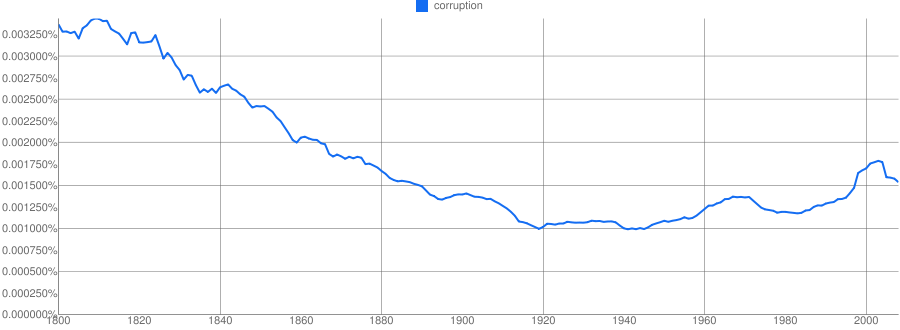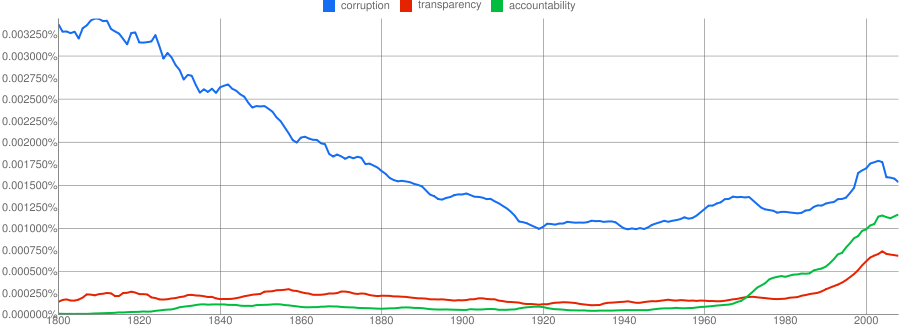Has the world ever been more fed up with corruption? In North Africa and the Middle East, disgust with corruption is one driver of the most astounding movement for political reform in decades.
A recent BBC poll of more than 13,000 people across 26 countries confirms that corruption is the most talked about global problem, ahead of pivotal issues such as climate change, unemployment or poverty.
Is this public recognition of the corruption problem unprecedented? How much did the world care about corruption 200 years ago?
Google’s new archive of digitised books gives us some historical perspective on this tricky question.
How frequently has corruption been mentioned in English language books over time? How does the visibility of corruption today compare with 100 or 200 years ago?
At first sight, the results are quite surprising.
There has been a major upswing in references to corruption in English books over the last twenty years.
The longer view looks different. Relative to the overall number of books, corruption is still less frequently referenced today than it was 200 years ago.
Without over-interpreting the results, let me draw one straightforward conclusion : corruption has been a major concern from the very early days of democratic nation states. Despite fluctuating over time, it has continued to plague societies and consume scholars and commentators.
So nothing new under the sun in the debate on and salience of corruption?
From complaints to ways forward – enter the solutions focus
On the contrary, the essential tools to tackle corruption are becoming more widely recognized.
Until the 1970s, transparency and accountability appeared little in books. Authors paid scant attention to those concepts.
Since then, transparency and accountability have become the rising stars in the policy debate, quickly closing in on the prominence of corruption itself.
In other words, the debate is no longer content with simply lamenting the problem, and is now much more focused on designing the right solutions.
We are proud to be part of this movement. Perhaps we played some minor part in shifting the debate.
p.s. Interestingly, when The Economist’s data people wanted to use this tool, the word they chose was also “corruption”.

















 Connect with us on Facebook
Connect with us on Facebook Follow us on Twitter
Follow us on Twitter